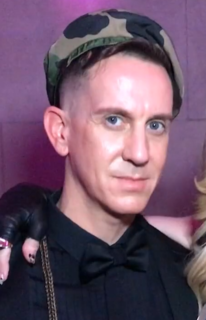A Quote by Jane Hirshfield
One breath taken completely; one poem, fully written, fully read - in such a moment, anything can happen.
Related Quotes
Poetry is a way of being alone without feeling alone. It allows you to experience another mind, I suppose. And it does that more fully than other art forms, I think. It doesn't simply describe an experience, or a feeling, or a moment: it evokes it through, say, rhythm or tone or diction or metaphor. It creates a mood. A poem communicates before it is understood; it's not a fully paraphrasable form, which distinguishes it from other forms of writing.
On the information sheet in a New York hotel, I recently read: 'Dear guest! To guarantee that you will fully enjoy your stay with us, this hotel is totally smoke-free. For any infringement of this regulation, you will be charged $200.' The beauty of this formulation, taken literally, is that you are to be punished for refusing to fully enjoy your stay.
Sometimes I am puzzling over something for months and months and the poem gets created in small bursts and rewritten a hundred times, and chopped up and put back together, etc. Occasionally, though rarely, a poem just plops out of my head fully-formed. But always it is a blueprint of what my brain is trying to navigate at that moment.




































